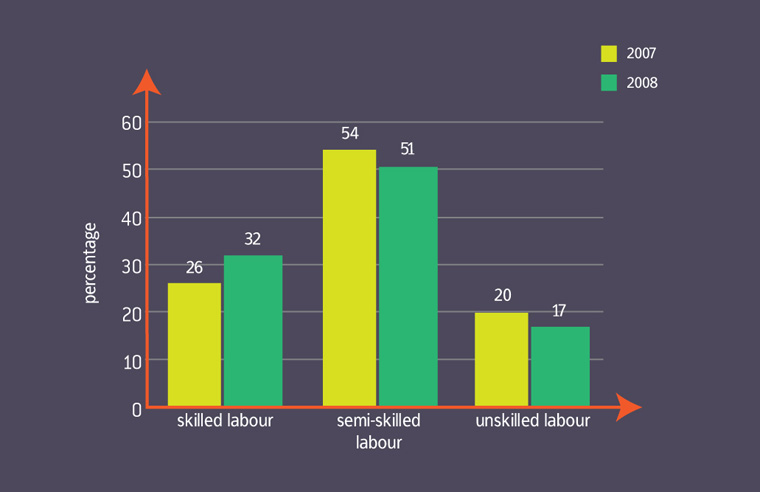
| the skills challenge |
Although Gauteng's economic production is largely driven by the knowledge-intensive tertiary sector, the province’s workforce was dominated by semi-skilled labour. |
| skill level of the Gauteng labour force |
 |
| Quantec Research 2009 cited in Gauteng Department of Finance (2010) ‘Socio-Economic Review and Outlook: 2010 (SERO)', accessed at http://www.finance.gpg.gov.za/GDFDocuments/Pages/SERO.aspx |
With the decline of primary sector employment, the Gauteng labour market is plagued by structural unemployment as workers that were previously employed and competent to perform tasks in agriculture and mining now seek work in the faster growing secondary sector (manufacturing, trade and construction) and tertiary sector (wholesale and trade, finance and business, government and private households). The reality is that many do not possess the necessary skills to enter these sectors, where high-skilled labour requirements dominate. Therefore “without basic retail, literacy or numeracy skills, many of these are left without the human capital (or portable knowledge and skills) to make the transition to new occupations. The situation creates structural unemployment caused by a mismatch between jobs offered by employers and potential workers.” (Derreck Mengel Associates South Africa (DMASA) (2009) in Gauteng Treasury (2009) 'A Shortage of Skills in Gauteng: How is it Being Addressed?' June Quarterly Bulletin. See also 'Gauteng’s 2010 Socio-Economic Review and Outlook (SERO)', compiled by Gauteng Treasury.) |
